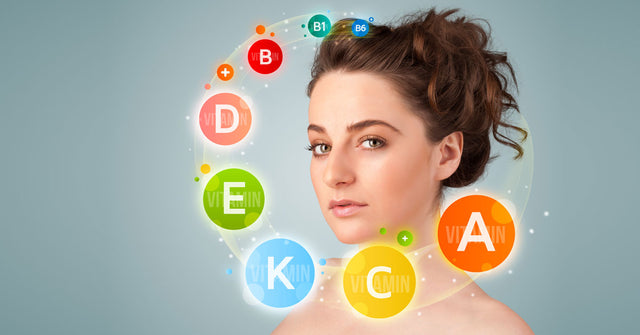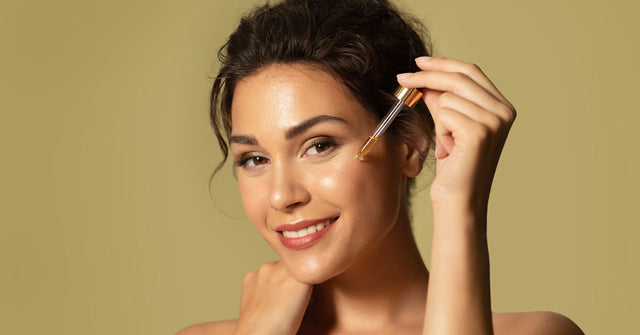Psoriasis is a common skin condition. Numbers show that over 8 million Americans have psoriasis. On a global level, 125 million people, or 2% to 3% of the world’s population have psoriasis, too. People can develop psoriasis on different parts of the body, including the face. Read on to learn more about psoriasis on face and how to manage it properly.
What is Psoriasis?
soriasis is a chronic skin disease indicated by raised, scaly patches on the skin resulting from systemic inflammation. This skin condition goes through cycles where people experience flares for a few weeks or months followed by remission.
The first person to accurately describe different types of psoriasis was an English doctor Robert Willan in the early 1800s. It will take over 100 years, until the 1960s, for doctors and scientists to discover that psoriasis was an autoimmune disease. Although not a life-threatening condition, psoriasis can be overwhelming and negatively affect a person’s quality of life.
What is Facial Psoriasis?
Facial psoriasis is a chronic or long-term skin condition where symptoms of psoriasis appear primarily on a person’s face. Psoriasis on face causes a rapid development of skin cells across the face, which leads to uncomfortable scaly patches.
One review suggested that facial psoriasis occurs in 17% to 46% of people with psoriasis. That means almost half of people with psoriasis may develop symptoms on their faces, too. Evidence also shows that facial psoriasis could be a marker of a more severe disease.
Types of Facial Psoriasis
Not all cases of facial psoriasis are the same. There are different types of this autoimmune skin condition, such as:
-
Hairline psoriasis: affects primarily the area around the hairline on the forehead or at the nape of your neck. It may extend into your scalp and look like dandruff.
-
Sebopsoriasis: Seborrheic dermatitis is a skin condition that causes scaly patches and red skin. In people with sebopsoriasis, features of seborrheic dermatitis and psoriasis coexist. Pink or red plaques on the skin can be covered in yellow, greasy scales.
-
Facial psoriasis: a type of psoriasis that affects various areas on the face and isn’t limited to one specific area only (unlike hairline psoriasis). You may also have psoriasis elsewhere on the body such as dry elbows psoriasis.
Where Does Facial Psoriasis Appear?
Technically speaking, there are no rules in terms of the location of psoriatic patches. However, some areas are more prone to psoriasis on face than others. Facial psoriasis primarily affects the following:
-
Hairline: psoriasis can affect the skin along your hairline, especially the forehead and back of your neck.
-
Inside the ears: psoriasis can affect your ears and lead to scaly patches around the ear, behind the ear, and inside the ear canal. Scaling can accumulate and block the ear canal, which may result in temporary hearing loss.
-
Around your eyes: sometimes people develop scaly patches on their eyelids or skin surrounding their eyes and eyebrows.
-
Between the nose and upper lip: some people with facial psoriasis may develop rough skin patches between the nose and upper lip, which can further affect their confidence.
Symptoms of Psoriasis on the Face
Symptoms of facial psoriasis may range from mild to severe. Initially, the symptoms may appear at the hairline and extend down toward the chin. Below, you can see the most common symptoms of facial psoriasis:
-
Dry or cracked skin: psoriasis tends to cause dryness in the affected areas. As a result, your skin may appear rough and show cracks.
-
Itching or burning: psoriasis often involves a burning sensation and discomfort. The affected areas tend to be itchy.
-
Scaling or flaking: the hallmark sign of psoriasis – the development of scales or flakes on the skin. White or silver scales may cover red patches.
-
Swelling: since psoriasis is associated with inflammation, swelling may appear in the affected areas.
-
Painful or irritated: psoriasis can cause pain and irritation, particularly when the skin is cracked.
Causes of Psoriasis on the Face
The exact cause of facial psoriasis, like psoriasis in general, is unclear. However, in most cases face psoriasis occurs due to:
-
Genetics: psoriasis has a genetic component so you’re more likely to develop this skin condition if you have a family history of psoriasis. Evidence shows that heritability of psoriasis ranges from 60% to 90%.
-
Inflammation: psoriasis is an immune-mediated inflammatory disorder. That means abnormal immune response triggers inflammation and speeds up the production of skin cells, leading to psoriasis.
-
Skin trauma or injury: the Koebner phenomenon in facial psoriasis is a common reaction to skin trauma or injury. Skin injuries can trigger psoriatic flare-ups.
Common Triggers of Psoriasis on the Face
The key to managing facial psoriasis and prolonging remission is to identify triggers of scaly patches on the skin. The most common triggers are:
-
Smoking: nicotine from cigarettes may alter the immune response in the body and thereby contribute to psoriasis or trigger flare-ups.
-
Stress: emotional stress can exacerbate symptoms and trigger flare-ups because it affects immune response.
-
UV radiation exposure: excessive exposure to the sun’s damaging UV rays and tanning beds can trigger symptoms of facial psoriasis.
-
Dry weather: it dries out your skin and makes it more susceptible to flare-ups.
Self-Care Tips for Treating Psoriasis on Your Face
It is important to mention that there are three psoriasis healing stages. The first stage is flare-up or relapse followed by improvement, and then remission. The goal is to make sure the third stage, remission, lasts as long as possible. These tips will help you out:
-
Gentle cleansing: Maintain skin hygiene, decrease inflammation, and remove impurities. Opt for gentle products such as Rejuvoderm Clarifying Cleanser, which keeps the skin clean, improves elasticity and firmness, and nourishes your skin. The gentle formula of this cleanser won’t trigger facial psoriasis.
-
Moisturize regularly: Use Infusoderm Deep Hydration Daily Moisturizer to deeply hydrate and nourish your skin. The moisturizer brightens your complexion and provides antioxidant defense.
-
Use a toner: Use a toner to remove impurities that the cleanser may have missed. Add Maxatone Clarifying Toner to your skincare routine to achieve a radiant glow and even complexion without harsh ingredients.
-
Avoid triggers: Identify triggers behind psoriatic flares on your face and do your best to avoid them or limit exposure. For instance, if you’re a smoker, you may want to consider quitting smoking.
-
Sun protection: Since UV exposure triggers symptoms of psoriasis, you may want to apply facial sunscreen or moisturizer with SPF to protect your skin.
-
Avoid harsh products: Harsh products can irritate your skin and cause scaly patches. Opt for products with gentle ingredients that nourish your skin instead.
-
Manage stress: Stress can trigger psoriasis. Meditation, yoga, exercise, deep breathing, reading, and writing are some examples of numerous ways to relieve stress.
FAQs
What are the first signs of psoriasis on the face?
The first signs of face psoriasis may include red or pink patches, flakiness, or dryness. It is important to mention that the exact symptoms depend on where they are. For instance, face psoriasis may resemble dandruff when it forms at your hairline.
How long does psoriasis on the face last?
The duration of facial psoriasis varies widely among people. Psoriasis flares may last anywhere from several weeks to a few months. Then, the period of remission ensues. Remission may last weeks up to 12 months or more. You can make remission last longer by identifying triggers of psoriasis and avoiding them.
Can psoriasis skin go back to normal?
Psoriasis can get into a period of remission, but this is a chronic condition and doesn’t go away forever. The good thing is that remission can last months or years. With a healthy lifestyle and well-structured skincare routine, you can take care of psoriasis face and prolong the remission period.
Can psoriasis spread by touch?
Psoriasis isn’t contagious and it can’t spread by touch. You can’t “catch” psoriasis through physical contact with someone. Reciprocally, you can’t transmit psoriasis to other people by touching them. Most importantly, you can’t spread psoriasis to other parts of the body just by touching red flaky spots.
Conclusion
Psoriasis on face is a common problem for people with this autoimmune skin condition. Facial psoriasis can be particularly overwhelming and affect your confidence or self-esteem. However, there’s a lot you can do for long-term remission. A healthy lifestyle, proper skincare routine, and avoidance of triggers are crucial.
References
1] https://www.psoriasis.org/psoriasis-statistics/
2] https://pubmed.ncbi.nlm.nih.gov/17907013/
3] https://www.ncbi.nlm.nih.gov/pmc/articles/PMC6330687/
4] https://www.psoriasis.org/psoriasis-on-the-face/
5] https://www.ncbi.nlm.nih.gov/pmc/articles/PMC3068801/
6] https://www.ncbi.nlm.nih.gov/pmc/articles/PMC10671208/
7] https://www.ncbi.nlm.nih.gov/pmc/articles/PMC6893164/
8] https://www.aad.org/public/diseases/psoriasis/treatment/medications/how-long
Mentioned in this article
More stories

Essential Vitamins for Dry Skin in Winter






